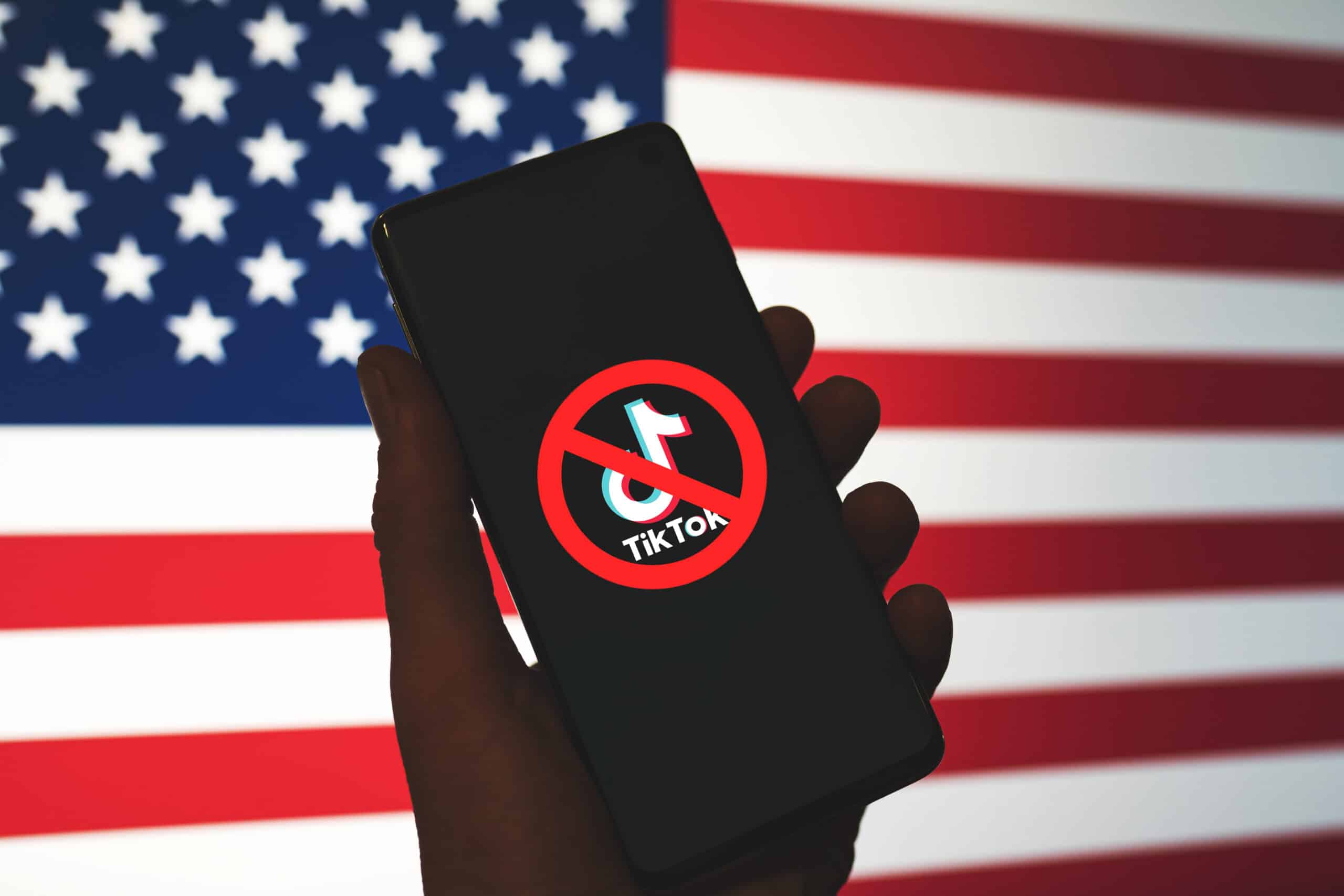
TikTok Faces Legal Hurdles: The Battle for Survival in the U.S. Market
In recent years, TikTok has become an undeniable force in the social media landscape, boasting over 150 million users in the United States alone. The app, owned by Chinese technology giant ByteDance, has revolutionized how people interact with video content, empowering millions of users to create, share, and engage with short-form videos. However, as TikTok’s popularity skyrockets, so does scrutiny from U.S. lawmakers and regulators concerned about its ties to China.
The latest development in this ongoing saga is the app’s legal defeat in its attempt to block a law that could result in a U.S. ban unless its parent company, ByteDance, divests from its U.S. operations. This article explores the legal battle TikTok is facing, the potential consequences of this law, and the broader implications for the future of the app in the U.S.
The U.S. Law That Could Ban TikTok

In 2024, TikTok’s future in the United States was thrown into uncertainty when the U.S. Court of Appeals upheld a law requiring ByteDance to divest from TikTok’s U.S. assets or face a ban. The law, which was signed by President Biden in April 2024, was passed in response to national security concerns. U.S. lawmakers have voiced fears that the Chinese government could exploit TikTok’s vast user data for surveillance or propaganda purposes. Given the app’s rapid growth and its collection of personal data from American users, concerns about its potential misuse have only intensified.
The law specifically targets apps owned by companies in “adversarial foreign countries,” such as China. Under this legislation, U.S. app stores, including those run by Apple and Google, would be banned from offering apps like TikTok unless they are divested from their foreign owners. For ByteDance, this means that unless it sells off its stake in TikTok’s U.S. operations by January 2024, the app will likely be removed from U.S. app stores, effectively crippling its operations in one of its largest markets. BBC News, NIKKEI Asia
TikTok’s Legal Challenge: A Fight for Survival

TikTok, however, is not going down without a fight. The company has long maintained that a forced divestment is not only impractical but also unjust. TikTok’s legal team argues that the law violates the First Amendment by targeting speech on a platform that is widely used for free expression. TikTok’s lawyers contend that such a drastic move would set a dangerous precedent, allowing the U.S. government to unilaterally control the fate of a major social media platform based on geopolitical tensions rather than concrete security threats.
Moreover, This argues that divesting its U.S. operations would be practically impossible. According to the company, there are significant technological, commercial, and legal barriers to making such a split. TikTok’s algorithms, which form the core of the app’s content recommendation system, are deeply integrated with ByteDance’s broader infrastructure. Removing this app from ByteDance would require not only a total overhaul of its technology stack but also the cooperation of the Chinese government, which has made it clear that it would not allow a forced sale of TikTok’s assets.
In a legal filing, TikTok’s legal team argued that the U.S. government had effectively abandoned efforts to negotiate a settlement. The company claimed that a national security agreement designed to protect U.S. user data from Chinese government access was not enough for the administration, which has been pushing for a complete separation of ByteDance from TikTok. The government’s stance has left this app with limited options: either comply with the law’s divestment demands or risk a total shutdown of its U.S. operations. Rolling Stone, npr
The Broader Legal Implications of the Ban
The ongoing legal battle between TikTok and the U.S. government is not just a fight for one company’s survival— it has broader implications for the future of foreign-owned tech companies operating in the U.S. If the law is upheld, it could set a precedent for how other social media apps and tech giants from adversarial countries are treated. It might also embolden lawmakers to take more aggressive stances on the operations of foreign companies, especially as tensions between the U.S. and China continue to grow.
At its core, the viral app case raises difficult questions about the balance between national security concerns and free market principles. While it is understandable that the U.S. government is concerned about data privacy and foreign influence, critics argue that the government is using national security as a pretext to regulate a platform that has become an important space for free expression. The law could also disproportionately target Chinese companies, while many U.S. tech companies have similar ties to countries like China and Russia, but are not subject to the same scrutiny.
In addition, the law may have long-term implications for international relations. A forced sale or shutdown of this app could further damage the already fraught relationship between the U.S. and China. The Chinese government has made clear that it will not allow a forced divestment, citing concerns over technology transfer and intellectual property. As the case unfolds, it could trigger a wave of retaliatory actions from China, potentially affecting U.S. companies operating in the region. BBC News, Rolling Stone
The Future of TikTok in the U.S.
Despite the legal setbacks, TikTok has shown resilience. The company’s user base in the U.S. remains incredibly loyal, with millions of daily active users who use the platform for everything from entertainment to business marketing. If the ban goes into effect, it could disrupt not only the social media landscape but also the influencer economy that has blossomed around TikTok. The app has transformed into a powerful tool for small businesses, creators, and even political movements, making its potential removal from U.S. app stores a significant loss.
For ByteDance, the divestment order would not only result in the loss of a major revenue stream but also force the company to re-evaluate its global strategy. ByteDance has already faced challenges in other countries, including India, where TikTok was banned in 2020 due to similar national security concerns. If the U.S. follows suit, it could leave this app scrambling to find alternative markets and partners to make up for the lost revenue from its largest audience.
The company may also face significant financial consequences in the event of a divestment. Given the complex nature of TikTok’s U.S. operations, finding a buyer who is willing to purchase its assets without taking on excessive risks could be challenging. Furthermore, the forced sale could result in a loss of control over the platform’s long-term strategy, particularly its algorithm and user data.
What’s Next for TikTok?
As the legal battle continues, TikTok’s future in the U.S. hinges on the outcome of ongoing court proceedings. The company is likely to continue challenging the divestment law in the courts, hoping to find a way to negotiate a settlement or delay the forced sale of its U.S. operations. However, with the law’s January 2024 deadline fast approaching, this app may soon have to make some difficult decisions about its operations in the U.S.
In the meantime, the company is focusing on securing its user data and making its case for staying in the U.S. market. TikTok has already proposed various measures to safeguard U.S. user data, including data storage solutions and partnerships with U.S.-based tech companies. While the U.S. government may still push for a divestment, TikTok will likely continue to argue that a complete separation from ByteDance is both impractical and unnecessary.
The Crossroads of National Security and Free Expression
The fight over TikTok’s future in the U.S. is far from over. While the platform faces an uncertain future in the United States due to the law requiring ByteDance to divest, it remains to be seen how the legal challenges will play out. This case is not only a test of TikTok’s resilience but also a broader reflection of the tension between national security concerns and freedom of speech in the digital age.
As we move closer to the January 2024 deadline, the stakes couldn’t be higher—for TikTok, its parent company ByteDance, and the millions of American users who rely on the app for entertainment, business, and social interaction. The ultimate decision could have far-reaching consequences for the future of global tech regulation, the relationship between the U.S. and China, and the digital rights of citizens around the world.
Frequently Asked Questions
- What is the TikTok divestment law? The TikTok divestment law mandates that ByteDance, TikTok’s parent company, must sell its U.S. assets by January 2024 or face a ban in the United States due to national security concerns.
- Why is the U.S. government concerned about TikTok? The government fears that TikTok, owned by Chinese-based ByteDance, could be used to access user data or spread Chinese propaganda.
- What does TikTok argue in its defense? TikTok claims that divesting its U.S. operations is impossible due to technological, commercial, and legal challenges, and that the law violates free speech rights.
- What are the potential consequences for TikTok if it loses the legal battle? If TikTok is forced to divest, it could face a ban in the U.S., a loss of significant revenue, and potential damage to its global strategy.
- How is TikTok trying to address national security concerns? TikTok has proposed several solutions to safeguard U.S. user data, including working with U.S.-based tech companies and implementing stricter data security measures.
- Could other foreign tech companies be impacted by this law? Yes, this law could set a precedent for other foreign-owned tech companies operating in the U.S., particularly those from adversarial countries like China.
The Future of TikTk in the U.S.
As TikTok battles legal and political challenges, the outcome of this case will determine whether it can continue to thrive in the U.S. or face a significant blow to its global dominance. Whatever happens, the case underscores the growing tensions between national security concerns and the rapidly evolving digital landscape.
Do follow for more news: DailyForesight



